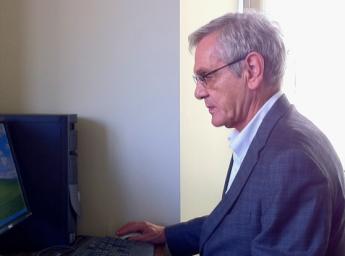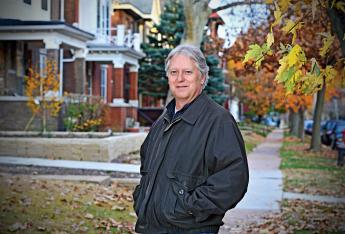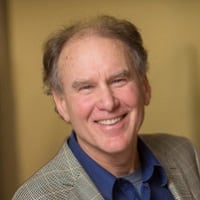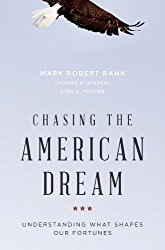Related Topics
Right Angle Club: 2016
In progress.
Right Angle Club 2017
Dick Palmer and Bill Dorsey died this year. We will miss them.
Right Angle Club, 2018
New topic 2018-02-03 03:54:38 description
Revolutionary Features of Big Data

|
| Professor Kenneth Burdett |
The Right Angle Club, now in new quarters in the Pyramid Club, was recently visited by Professor Kenneth Burdett of the Universities of Pennsylvania and Cornell. A charming fellow with a Scottish burr (he mentioned being born in England), the professor told of a new twist to economics, which mostly employs familiar data in unfamiliar ways. Many concepts central to macroeconomics actually become less informative as net values or ratios of other expressions, losing useful information in the name of abbreviated elegance. "Unemployment" was offered as a handy illustration.

|
| Mark Rank |
We tend to think of 230,000 new jobs this month as a hard fact, whereas employment might be more precisely described as a set of several million people switching jobs each month, offsetting several million others who gain new jobs, along with almost as many who simply decide to leave the workforce and retire. We always sort of knew unemployment was a combination of gainers and losers, but few of us recognized that net turnover affected far larger volumes of people going opposite ways at slightly different rates. The reasons underlying a large flux, in other words, may be much more important than small net overall fluctuations. Or, far larger population upheavals may produce deceptively similar net results. We've been accustomed to judging smaller final ratios than to many-times larger underlying flows, or at least implying undue importance to a small subset of change. What usually happens is vastly larger numbers of people lose their jobs during a depression, but almost as many millions more re-enter the workforce, too, but at a lower wage level.

|
| Thomas A. Hirschl |
Curiously, a new book by Mark Rank of Washington University, and Thomas A. Hirschl of Cornell (!) called Chasing the American Dream: Understanding What Shapes our Fortunes has just appeared, saying much the same thing. Their approach is to develop a figure for the risk of being unemployed for a year in the next 5, 10, or 15; at the moment the answer for unmarried white persons sometime during the next fifteen years in the future, is 32 percent. That seems to be a much more scary projection than setting the present aggregate total unemployment at 4.6%. We'll have to wait 15 years to see which prediction really is more descriptive, or if it has the same consequences we immediately assign to it. But it would appear many assumptions are about to be set on their head, and the quality of our projections is about to shift dramatically. For example, Chairman Bernanke of the Federal Reserve placed great stock on wage inflation being "core" inflation, but these calculations suggest much more can be made of the data than that. Since somehow it is suggested the present recession has eight more years to run, current oversupply may require eight more years to run down; old data restated in this new way may have different implications for policy.

|
| Chasing the American Dream |
Right Angle members who lean both right and left seemed impressed and befuddled by a new view of an old topic, and that's probably a good thing. There seems no question of the validity of the approach, no question of significance, and little doubt of its ability to change attitudes. We look forward to many more such insights from the Dismal Science, of this nature. For instance, this professor of many students of the rentier class remarked at how repeatedly he had been struck by students able to afford red convertibles (and the Princeton tuition cost) were nevertheless willing to throw themselves into the scrum of Wall Street, to make even more money.
He regarded that as a strength of the American economy, in stark contrast to that in Europe, where the first sign of prosperity sent his old acquaintances straight to the pub, to relax a bit. In the British aristocracy, "entering trade" is a low-class thing to do, whereas sitting on the sidewalk sipping wine is the mark of really high class. The American version is reversed, but possibly that's a more useful misconception.
Originally published: Sunday, March 20, 2016; most-recently modified: Tuesday, June 04, 2019